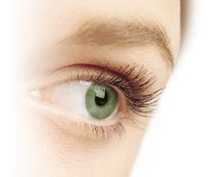 Have you heard of hyaluronic acid? Yes, I know, acid is a very SCARY word. It connotes harsh chemicals, burning, and peeling. Who dares even utter the words skin and acid in the same sentence?
Have you heard of hyaluronic acid? Yes, I know, acid is a very SCARY word. It connotes harsh chemicals, burning, and peeling. Who dares even utter the words skin and acid in the same sentence?
Yet recently, I found hyaluronic acid (HA) mentioned coincidentally in two separate articles within the same magazine. Reviews of HA tout benefits such as: wrinkle-plumping, smoothing skin, and reducing fine lines. I decided to do some detective work to see what all the fuss was about.
What it is? Hyaluronic acid is not an acid in the same sense as salicylic, glycolic, or alpha hydroxy acids, which aid in skin exfoliation. Hyaluronic acid (aka hyaluronan) is a naturally-occurring substance found in the human body. It acts to cushion and lubricate joints, nerves, hair, skin, and eyes.
How it works? Hyaluronic Acid is a humectant, which means it draws water to the skin and helps prevent moisture loss. (Imagine a wrinkled raisin dropped into a cup of water. After a few minutes, the raisin absorbs the water and plumps up.)
Our body’s supply of HA is located in the skin’s tissues, where the viscous, jelly-like substance helps keep skin firm and hydrated. Have you ever noticed a baby’s skin–naturally dewy and plump?
Babies are born with a high level of HA. But as we age, our ability to produce hyaluronic acid diminishes.
Where can you find it? HA is now a popular ingredient found in moisturizers and serums. (HA is also the ingredient used in injectables such as Restylane and Juvederm.)
Benefits? Applied topically, HA increases hydration and improves elasticity. Every skin type can use it. Even oily skin can benefit. It is important not to over-dry oily skin or it will produce even more oil. HA is a natural way to boost skin’s moisture.
Any drawbacks? Hyaluronic acid aids in plumping and holding moisture. It doesn’t claim to be an exfoliator or an anti-aging product, like retinol. Also, if you live in a very dry climate with low humidity and moisture cannot be pulled from the air, HA may pull moisture from skin, thus producing a drying effect rather than moisturizing, according to Dr. Leslie Baumann, MD.
Judge for yourself.
Dr. Nicholas Perricone, MD says:
“By the time we reach 50 years of age, our bodies are producing about 50% less HA than they did in youth…This decline is a major contributing factor to… wrinkled, sagging skin.”
I’m listening, Dr. Perricone. Hey, who wouldn’t want to have baby-soft skin again?
FYI: If you are interested in learning more about products which contain hyaluronic acid, contact Janna at www.makeovers4u.com. I use her Intense Moisture Complex...I wouldn’t go a day without it.






2 Comments
An esthetician used a LED light treatment on my face, and within a week I had a sudden onset of a floater in my left eye and white flashes when I blinked. Thankfully, an exam by my eye doctor revealed no detached retina. I will not be having that blue/red light treatment again! I started taking a hyaluronic supplement for eyes and by the second day the white flashes were gone, and my eye feels less dry as the day goes on. If HA helps the eyes this much, imagine what it can do for the rest of the body. Be cautious!
Linda,
Thanks for sharing your story. I don’t think people realize that hyaluronic acid (aka hyaluronan)is a naturally-occurring polysaccharide found in the human body. It acts to cushion and lubricate our joints, nerves, hair, skin, and eyes. In your case, it was a god-send for your eye.
Too bad our ability to produce HA declines with age.